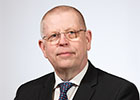The Minister of Education and Research's 2025 presentation on the implementation of the state's long-term development strategy "Estonia 2035"
Session: 15th Riigikogu, 5th session, plenary session
Date: 2025-05-15 13:09
Participating Politicians:
Total Speeches: 113
Membership: 15
Agenda Duration: 2h 21m
AI Summaries: 113/113 Speeches (100.0%)
Analysis: Structured Analysis
Politicians Speaking Time
Politicians
Analysis
Summary
The agenda includes the Minister of Education and Research’s 2025 presentation on the implementation of the state's long-term development strategy "Estonia 2035" and a discussion of related reforms and potential challenges. The speaker is Minister of Education and Research Kristina Kallas, whose speech focuses on the impact of artificial intelligence and the need to protect the Estonian language and culture, the role of the AI-Jump program, and strengthening the educational activities underlying the Estonian language. In addition, the transition to Estonian-language instruction, reforms to vocational and applied education, a system for developing adult skills, and the accessibility, quality, and funding of higher education were highlighted. Various parties emphasized regional differences and the impacts of both the internal and external environment on the education system, including the recognition of ENIC/NARIC diplomas, the network and management of schools, and the planning of funding. Different parties raised questions and criticisms, and the discussion also covered youth work, vocational education, and higher education, including the impact of the regional network on the development of Hiiumaa, Narva, and other areas. Overall, the agenda was based on cooperation and consistent implementation of reforms driven by strong technology and language solidarity.
Decisions Made 1
Once the discussion of the agenda concluded, no decisions were made; a substantial discussion session took place between factions, and negotiations were carried out. During December, it is expected that specific priorities and budget and adjustment matters related to the transition to Estonian-language instruction, further cooperation on the TI-Hüppe project, and operations related to the involvement of local governments will be clarified and confirmed.
Most Active Speaker
The most active speaker was Liina Kersna (Reform Party), a representative of the Reform Party faction in the Riigikogu; her role is party faction leader/coordinator in discussions and she primarily represented the opposition's viewpoints and proposals regarding the agenda item. Position: right (right-wing).
Aseesimees Arvo Aller
AI Summary
Today, the Riigikogu is discussing the implementation of the state's long-term development strategy, "Estonia 2035." The presenter is Minister of Education and Research Kristina Kallas, and the procedure stipulates a 20-minute presentation, 30 minutes of debate time for Riigikogu members, and the submission of one question.
Haridus- ja teadusminister Kristina Kallas
AI Summary
Highlighting the changes taking place in a rapidly evolving world, Kristina Kallas affirms that Estonia must complete the transition to Estonian-language schooling, reform vocational and higher education, promote lifelong learning, and strengthen research and development, so that young people are nationally secure and economically competitive, and Estonian language and culture are preserved in the age of artificial intelligence.
Aseesimees Arvo Aller
AI Summary
Vice-Chairman Arvo Aller offered his thanks, noted that the audience had questions, and asked Urmas Kruuse to take the floor.

Urmas Kruuse
Profiling Eesti Reformierakonna fraktsioonAI Summary
Urmas Kruuse supported the initiative for the early introduction of AI and its inclusion in the school curriculum, emphasizing to students the impact AI will have on jobs and the importance of developing the skill to choose the right career path. At the same time, he raised the issue of the physical fitness of young men being called up for military service and requested proposals for an effective way to improve the system, suggesting, for example, that by starting with just one push-up, students could aim to reach 50 by the time they graduate high school.
Haridus- ja teadusminister Kristina Kallas
AI Summary
Kristina Kallas said that the solution to the problem lies in broader societal change, not within the school itself, and that within the framework of the coalition agreement, specialized sports elective modules will be established in connection with state gymnasiums. In at least four Estonian regions (South, North, East, and West Estonia), one school must offer a track focused on physical activity and sports, allowing young elite athletes to pursue their gymnasium education and their sports career simultaneously.
Aseesimees Arvo Aller
AI Summary
The Deputy Chairman addresses Vladimir Arhipov and asks him for something.

Vladimir Arhipov
Profiling Fraktsiooni mittekuuluvad Riigikogu liikmedAI Summary
Vladimir Arhipov points out that in local municipalities where the majority of the population is Russian-speaking, kindergartens face a significant shortage of social workers and speech therapists. This problem has deepened following the start of military action in Ukraine and the cessation of recognition of ENIC/NARIC diplomas for specialists from third countries—particularly speech therapists and special education teachers. This invalidates their diplomas, restricts their ability to work professionally, and consequently prevents children with special needs from receiving the necessary assistance. Currently, specialists are permitted to work individually with children for a limited time, which is often insufficient for full professional engagement. The question is what measures the Ministry of Education plans to take to address the shortage of specialists in kindergartens, emphasizing that the discussion is not about *a* transition, but a *smooth* transition.
Aseesimees Arvo Aller
AI Summary
Deputy Chairman Arvo Aller says it is your time.

Vladimir Arhipov
Profiling Fraktsiooni mittekuuluvad Riigikogu liikmedAI Summary
The speaker stresses that services offered in the native language are important for the children who need them.
Haridus- ja teadusminister Kristina Kallas
AI Summary
Kristina Kallas said that the ENIC/NARIC decision only confirms the diploma's compliance with Estonian qualification requirements, not the person's suitability for the job, and the specific position is determined by the school and kindergarten operators. At the same time, Tallinn is planning to increase the availability of support specialists through micro-qualifications, a career framework, and further training, but the current qualification requirements cannot legally be altered for those who have obtained these diplomas. A similar issue exists with some coaches who obtained their coaching qualifications at Russian universities.
Aseesimees Arvo Aller
AI Summary
Deputy Chairman Arvo Aller calls upon Urve Tiidus to speak.

Urve Tiidus
Profiling Eesti Reformierakonna fraktsioonAI Summary
Urve Tiidus stresses the seamless integration of artificial intelligence into the education system, raising questions about whether the necessary funding has been accounted for and regional equal opportunities guaranteed, and how students' creativity can be maintained in the age of AI.
Haridus- ja teadusminister Kristina Kallas
AI Summary
Artificial intelligence is transforming learning and examinations, and requires teacher training and a consciously managed learning process. As part of this initiative, a customized pilot program is being developed in Estonia in cooperation with OpenAI and Microsoft, and an Estonian-language curriculum and materials will be introduced during the next academic year.
Aseesimees Arvo Aller
AI Summary
The statement contains only the request, "Helmen Kütt, please!" and conveys no other substantive message.

Helmen Kütt
Profiling Sotsiaaldemokraatliku Erakonna fraktsioonAI Summary
Helmen Kütt emphasized the various levels of school education, highlighted the importance of adult learning and vocational education, and, citing the Noor Meister festival, inquired what steps the Minister of Education intends to take to further its development.
Haridus- ja teadusminister Kristina Kallas
AI Summary
Kristina Kallas emphasizes the need to increase the importance of vocational education and the necessity of focusing attention on secondary education for both adults and young people, adding that, as a minister, no single area should be overlooked.
Aseesimees Arvo Aller
AI Summary
Deputy Chairman Arvo Aller invites Vadim Belobrovtsev to take the floor.

Vadim Belobrovtsev
Profiling Eesti Keskerakonna fraktsioonAI Summary
Vadim Belobrovtsev expressed concern regarding the qualifications of the incoming generation of teachers and the worsening situation stemming from the new requirements set to take effect in September 2025. He cited inspections conducted in Narva, which revealed that only 30%, 34%, and 45% of classes met the standards, and questioned where qualified teachers could possibly be obtained.
Haridus- ja teadusminister Kristina Kallas
AI Summary
Minister of Education and Research Kristina Kallas said that the situation is not dire—over 1,000 new teachers have entered schools in recent years, the number of teachers has grown, and the profession is becoming more popular. However, the transition to Estonian-language instruction will involve a larger proportion of teachers who do not meet the qualification requirements. These teachers must be supported, and their professional certification is scheduled for 2026, especially in Ida-Virumaa, where the salary is 3,000 euros.
Aseesimees Arvo Aller
AI Summary
Deputy Chairman Arvo Aller calls upon Mart Võrklaev.

Mart Võrklaev
Profiling Eesti Reformierakonna fraktsioonAI Summary
Mart Võrklaev is raising the question of why a surplus arises and persists in the education sector, and why budget planning is failing, given that the surplus allocated to education in 2024 hit a record 107 million (40 million of which was in Estonian-language education). This occurred despite the fact that the perceived deficit seemed to be around 27 million, and the surplus for 2025 is also projected to be around 100 million.
Haridus- ja teadusminister Kristina Kallas
AI Summary
Kristina Kallas assured the Finance Committee that no money will be left over during the transition to Estonian-language instruction. However, the need by 2030 is greater than planned, and the calculation of teachers' salaries, the education grants paid to local municipalities, and the planning for the deployment of research funding and EU resources all require more precise calculations, as the resulting budget cuts are looming.
Aseesimees Arvo Aller
AI Summary
Jaak Valge is invited to the stage at the beginning of the speech.

Jaak Valge
Profiling Fraktsiooni mittekuuluvad Riigikogu liikmedAI Summary
He criticizes the education system as a total failure, pointing out, based on the Tõetamm comparison, that 9 out of 14 indicators are in decline, and student performance is falling in reading, mathematics, and natural sciences, even though the share of education expenditure is higher than the European Union average. He asks whether you agree that the reform has been completely missed.
Haridus- ja teadusminister Kristina Kallas
AI Summary
Education and Science Minister Kristina Kallas denies the claim that the Estonian education system is messed up, emphasizing that metrics show progress and that Estonia ranks among the world's best in international comparisons. However, due to the COVID-19 pandemic, there has been a decline in natural sciences, mathematics, and reading, with seventh-grade basic school students being particularly affected.
Aseesimees Arvo Aller
AI Summary
The Deputy Speaker calls upon Reili Rand to speak.

Reili Rand
Profiling Sotsiaaldemokraatliku Erakonna fraktsioonAI Summary
Reili Rand expresses concern over the rushed merger of two functioning schools as part of the Hiiumaa vocational education reform and the failure to heed the voice of the local community. She raises several substantive and practical questions and asks the minister for a clear message to the residents of Hiiumaa, along with concrete next steps for taking youth work and broader impacts into account.
Aseesimees Arvo Aller
AI Summary
Deputy Chairman Arvo Aller emphasizes that it is your time.

Reili Rand
Profiling Sotsiaaldemokraatliku Erakonna fraktsioonAI Summary
Reili Rand discusses the steps for improving quality in the youth field.
Aseesimees Arvo Aller
AI Summary
He briefly expressed his thanks.

Reili Rand
Profiling Sotsiaaldemokraatliku Erakonna fraktsioonAI Summary
Reili Rand is focusing on valuing youth workers.
Haridus- ja teadusminister Kristina Kallas
AI Summary
Kristina Kallas states that Hiiumaa’s current vocational education system fails to offer the necessary options to young people graduating from the 9th grade. Consequently, an education center is being established on the island that will integrate vocational education, the state gymnasium, and various study formats—including applied gymnasium, academic gymnasium, vocational training, part-time gymnasium studies, and basic level transition year studies—to ensure that young people can remain on the island.
Aseesimees Arvo Aller
AI Summary
Deputy Chairman Arvo Aller asks Anti Allas to take the floor.

Anti Allas
Profiling Fraktsiooni mittekuuluvad Riigikogu liikmedAI Summary
Anti Allas thanked the minister and posed two questions: first, how often the minister visits schools and whether schools are capable of coping with the bureaucratic and rapid amendment proposals; and second, what a teacher’s sustainable salary should be so that schools can attract the strongest people in the future.
Haridus- ja teadusminister Kristina Kallas
AI Summary
Kristina Kallas stated that these are not bureaucratic issues, but rather fundamental questions regarding the education system, such as adjusting the basic school completion period and establishing a rule for the start time of the school day, all of which will take effect starting September 1, 2026. Furthermore, the average teacher salary should be 120% of the Estonian average (in Ida-Virumaa, it is currently 127%), which will help attract staff to schools.
Aseesimees Arvo Aller
AI Summary
This is a very brief request to invite Peeter Tali to speak.

Peeter Tali
Profiling Fraktsiooni mittekuuluvad Riigikogu liikmedAI Summary
Peeter Tali expresses concern about Estonia's political culture, criticizing a political party convicted of corruption. He then shifts focus to the complete transition to Estonian-language education, referencing the absolute success achieved last year on September 1st, when the first grade was taught entirely in Estonian. He asks about the key lessons learned and the short, medium, and long-term outlook for this transition.
Haridus- ja teadusminister Kristina Kallas
AI Summary
Kristina Kallas stressed that the successful implementation of a major change requires political resolve and the consistent pursuit of the goal. She cited the approximately 90% of Estonian-language lessons in Narva and nearly 100% in Kohtla-Järve as examples of a significant shift in the share of Estonian-language instruction, for which she thanked the teachers and Tõnis Lukas.
Aseesimees Arvo Aller
AI Summary
Deputy Chairman Arvo Aller asks Priit Sibul to step forward.

Priit Sibul
Profiling Isamaa fraktsioonAI Summary
Priit Sibul stated that there is still a lot left undone in the education system, and while a minister is only in office for two years, no one person can fix everything or ruin everything. He requested clarification regarding the experiments the minister had referenced and the purpose behind changing the timing of basic school exams. He noted that he lacked a precise understanding of these changes, which are causing confusion at a time when studies are continuing and motivation is already a bit low.
Haridus- ja teadusminister Kristina Kallas
AI Summary
Kristina Kallas argues that the basic school final exams are primarily intended to determine admission to the next educational level, namely the gymnasium (high school). This is because state gymnasiums do not administer entrance tests, and the results of the basic school exams determine admission. Consequently, she claims that additional testing causes anxiety and has no real bearing on students' future academic success.
Aseesimees Arvo Aller
AI Summary
Deputy Chairman Arvo Aller called upon Züleyxa Izmailova to speak.

Züleyxa Izmailova
Profiling Fraktsiooni mittekuuluvad Riigikogu liikmedAI Summary
Züleyxa Izmailova is asking what activities are planned to improve opportunities for students with special educational needs (SEN) in pursuing their education, and whether a significant increase in quality can be expected in the near future.
Haridus- ja teadusminister Kristina Kallas
AI Summary
Kristina Kallas states that while Estonian basic schools and kindergartens currently provide good support for students with special needs, educational opportunities become limited after basic school. The vocational education reform aims to ensure that all vocational schools offer second or third level curricula specifically for children with special needs, thereby guaranteeing them a continuous educational trajectory and relevant skills for the job market.
Aseesimees Arvo Aller
AI Summary
Deputy Chairman Arvo Aller invites Tanel Kiik to take the floor.

Tanel Kiik
Profiling Fraktsiooni mittekuuluvad Riigikogu liikmedAI Summary
Tanel Kiik asked about the Education Minister's plans for improving educational equity across different counties, expressing concern that quality education is becoming a privilege only for young people in Tallinn and Tartu.
Haridus- ja teadusminister Kristina Kallas
AI Summary
Minister of Education and Research Kristina Kallas stressed that Estonia is seeing a growing socio-economic gap across basic education, secondary school, and university entry. She proposed solutions including abolishing entrance tests for first grade, merging small schools into larger learning centers, and improving university accessibility via student loans and needs-based grants.
Aseesimees Arvo Aller
AI Summary
Deputy Chairman Arvo Aller addresses Aleksei Yevgrafov and asks him for something.

Aleksei Jevgrafov
Profiling Fraktsiooni mittekuuluvad Riigikogu liikmedAI Summary
Jevgrafov stresses that while the situation in Narva has improved compared to a couple of years ago, the results of the administrative oversight of schools indicate that in four out of six schools, fewer than half of the teachers meet the necessary qualification requirements. Furthermore, he notes that the majority of these teachers lack pedagogical training or a professional teaching qualification. He then asks the ministry for its plan to address this issue and how it intends to ensure that schools have a sufficient number of qualified teachers.
Haridus- ja teadusminister Kristina Kallas
AI Summary
Minister of Education and Research Kristina Kallas confirms that all teachers in Narva schools meet the language and qualification requirements (at the time, there was only one exception). Furthermore, Narva has recently brought increasingly more highly educated teachers into its schools, and support must be provided to ensure they meet the requirements.
Aseesimees Arvo Aller
AI Summary
Deputy Chairman Arvo Aller calls upon Irja Lutsar to speak.

Irja Lutsar
Profiling Eesti 200 fraktsioonAI Summary
Irja Lutsar asks whether the lost faith of young people and their parents in Estonian higher education and in the improvement of its quality could be the reason why an increasing number of high school graduates are pursuing their first degree at foreign universities, and what the Minister of Education might do to address this.
Haridus- ja teadusminister Kristina Kallas
AI Summary
Kristina Kallas stressed that the quality of higher education is a priority, adding that quality is not determined by whether the education is tuition-based or tuition-free. Rather, she emphasized, it is achieved through international cooperation and the involvement of foreign faculty and international students.
Aseesimees Arvo Aller
AI Summary
Riina Solman was invited to speak at the start of the address.

Riina Solman
Profiling Fraktsiooni mittekuuluvad Riigikogu liikmedAI Summary
Riina Solman criticized the proposed merger of schools on Hiiumaa—specifically the gymnasium and the vocational school—stressing the local community's resistance. She questioned the legal grounds for the move, noting that the law requires every county to have one vocational school, which Hiiumaa would lose as a result.
Haridus- ja teadusminister Kristina Kallas
AI Summary
The Minister of Education and Research confirmed that not a single school will be closed on Hiiumaa, and both gymnasium education and vocational education will continue to be available there.

Mart Maastik
Profiling Fraktsiooni mittekuuluvad Riigikogu liikmedAI Summary
The local community warns that the closure of the Hiiumaa Vocational School and its free horticulture specialty, along with merging the school with a high school, will result in the school's decline, job losses, and the erosion of the local economy's vitality, including the sale of Suuremõisa Manor. This is because approximately 170 students, 115 of them studying horticulture, will be deprived of a sustainable learning opportunity.
Aseesimees Arvo Aller
AI Summary
Deputy Chairman Arvo Aller called Mart Maastik to the stage.
Aseesimees Arvo Aller
AI Summary
This speech emphasizes that now is your time to act.

Mart Maastik
Profiling Fraktsiooni mittekuuluvad Riigikogu liikmedAI Summary
Mart Maastik ponders how 40 high school graduates could create different professions and job positions for ten people, and questions how this is possible.
Haridus- ja teadusminister Kristina Kallas
AI Summary
Kristina Kallas stated that the Hiiumaa Vocational School currently does not offer basic school graduates the opportunity to study on Hiiumaa, and the goal of the reform is to give Hiiumaa youth the chance to acquire vocational education right there on Hiiumaa, rather than providing extra training for mainland residents.
Aseesimees Arvo Aller
AI Summary
The Deputy Speaker announces that Jaak Aab is now in the order of speaking.
AI Summary
Jaak Aab raised the issue that the government plans to redirect unused EU funds, totaling approximately 200 million euros, towards national defense, of which 38 million will remain with the Ministry of Education. He then asked which specific educational sectors and activities would have to be cut to find this money.
Haridus- ja teadusminister Kristina Kallas
AI Summary
Kristina Kallas stated that out of 38 million euros, 12 million in European Union funds allocated for youth work, language training, and adult education could be temporarily suspended due to defense requirements. The remaining 26 million euros in research funding will not be transferred to the Ministry of Defense but will stay with the Ministry of Education and Research, to be utilized for research and development aimed at enhancing defense capabilities, including establishing a center of excellence for artificial intelligence and carrying out crisis preparedness studies.
Aseesimees Arvo Aller
AI Summary
The speech is only a request to invite Tõnis Lukas to speak.

Tõnis Lukas
Profiling Isamaa fraktsioonAI Summary
Tõnis Lukas emphasizes that the original goal of Estonian-language instruction must be maintained, and language learning motivation must be ensured for both locals and newcomers, taking into account the impact of immigration and the formation of English- and Russian-speaking bubbles. He recalls the amendments to the Language Act that have been promised for several years already, and asks when those changes will reach the Riigikogu.
Aseesimees Arvo Aller
AI Summary
The message says it's your time.
Haridus- ja teadusminister Kristina Kallas
AI Summary
Minister of Education and Research Kristina Kallas said that the amendments to the Language Act should reach either the next or the subsequent government session, and she and her team will resolve the questions that arose while reading the law's explanatory memorandum tomorrow. She hopes that they will reach the Riigikogu for debate no later than the week after next.
Aseesimees Arvo Aller
AI Summary
Margit Sutrop is invited to the stage at the beginning of the address.

Margit Sutrop
Profiling Eesti Reformierakonna fraktsioonAI Summary
Margit Sutrop stressed that the specific fields of study had not yet been discussed. She then asked where the proportion of professional higher education is planned to be increased, in which fields this growth would be necessary, and where exactly the funding would be directed to ultimately achieve the goal of 40% of all higher education.
Haridus- ja teadusminister Kristina Kallas
AI Summary
Although the growth in professional higher education has occurred in the health sector, the need for it is broader across the entire social sector (youth work, social welfare, and social sector curricula), as well as in the fields of technology and engineering.

Lauri Läänemets
Profiling Sotsiaaldemokraatliku Erakonna fraktsioonAI Summary
Lauri Läänemets expressed concern over the educational inequality existing in Estonia and the limited access available for developing young people's talent. He also criticized the funding cuts and the plan to redirect 12 million [euros] from the youth sector to national defense, which, according to him, leaves youth work funding in limbo.
Aseesimees Arvo Aller
AI Summary
Deputy Chairman Arvo Aller invites Lauri Läänemets to the stage.
Haridus- ja teadusminister Kristina Kallas
AI Summary
Kristina Kallas calmly states that people don't know what that money is, and promises to explain.

Lauri Läänemets
Profiling Sotsiaaldemokraatliku Erakonna fraktsioonAI Summary
Lauri Läänemets asks whether there is a plan to invest in extracurricular activities in order to reduce young people's educational and socio-economic problems and give them more opportunities, or not.
Haridus- ja teadusminister Kristina Kallas
AI Summary
Kristina Kallas confirmed that the 12 million will not be taken from youth work funding, and that the money will instead come from other sectors (e.g., adult education and the language sector). She added that this involves development activities carried out within the Ministry of Education itself, which are being postponed because we currently need to increase our defense capability.
Aseesimees Arvo Aller
AI Summary
Deputy Speaker Arvo Aller asked Signe Riisalo to come forward and take the floor.

Signe Riisalo
Profiling Eesti Reformierakonna fraktsioonAI Summary
Signe Riisalo expresses concern about the future of vocational education for young people with special needs: although the changes implemented with the head of the Astangu Vocational Rehabilitation Centre have been approved and the young people feel supported within the jurisdiction of the Ministry of Education and Research, there is a reduction in study places and curricula, alongside a simultaneous desire that young people with special needs be maximally prepared for entering the labor market. She asks the minister for a vision on how to move forward in vocational education specifically for this target group.
Haridus- ja teadusminister Kristina Kallas
AI Summary
Minister of Education and Research Kristina Kallas said that young people with special needs have too few learning opportunities in Estonia, and all vocational schools have an obligation to increase the learning opportunities suitable for them, offer relevant specialties and support systems, and ensure study opportunities in preparatory training.
Aseesimees Arvo Aller
AI Summary
Vice-Chairman Arvo Aller invites Ester Karuse to the stage and asks her to speak.

Ester Karuse
Profiling Fraktsiooni mittekuuluvad Riigikogu liikmedAI Summary
The presenter cited the Valga incident, where new regulations concerning school requirements generated significant friction between the school administration, the local municipal government, teachers, and parents. This friction arose because preparation had been insufficient, parents were left without answers, and the strong sentiment was expressed that "human experiments" are prohibited in schools. As a result, the trial program was halted, and emphasis was placed on the need to organize earlier and better-prepared negotiations going forward.
Haridus- ja teadusminister Kristina Kallas
AI Summary
Kristina Kallas said that the new regulation, which is currently in the coordination round, consolidates three previous school rules. The requirements for the exterior and interior of the school building remain essentially unchanged, but the regulation has been greatly simplified. It now includes provisions regarding the start time of the school day, meal breaks, and the obligation to spend time outdoors. Implementation is likely to take place by 2026, rather than 2025.
Aseesimees Arvo Aller
AI Summary
Deputy Chairman Arvo Aller invites Liina Kersna to take the floor.

Liina Kersna
Profiling Eesti Reformierakonna fraktsioonAI Summary
Liina Kersna emphasizes the continued growth of adult education, noting participation exceeding 23% and the 25% target. She points out that repeated learning is becoming more fee-based in both vocational and and higher education, while simultaneously asking what impact their corresponding impact analyses will have on adults' self-training and professional development.
Haridus- ja teadusminister Kristina Kallas
AI Summary
This speech states that the impact in vocational education is small because the five-year waiting period is long and the proportion of repeat students is low. Conversely, the impact is greater in higher education due to the ten-year waiting period. Furthermore, during the first academic year, approximately 700 adult students paid for their studies, which is a small percentage of 45,000, but it demonstrates that adults are willing to spend money on their education.
Aseesimees Arvo Aller
AI Summary
Deputy Chairman Arvo Aller calls upon Riina Sikkut.

Riina Sikkut
Profiling Sotsiaaldemokraatliku Erakonna fraktsioonAI Summary
Riina Sikkut connects artificial intelligence and educational inequality to mathematics. She emphasizes the crucial importance of developing rigorous mathematics and analytical thinking, and she is requesting a plan for providing additional support—including the training and professional development of math teachers—so that schools with weaker results can ensure every Estonian child graduates with satisfactory math skills.
Haridus- ja teadusminister Kristina Kallas
AI Summary
Kristina Kallas emphasizes that mathematics learning outcomes primarily depend on students' socioeconomic background, not the teacher's qualification, and that to reduce the large gap between schools, these background-related inequalities must be addressed. However, early class selection and the sorting of children are also a problem.
Aseesimees Arvo Aller
AI Summary
He announced that there were no further questions and subsequently opened discussions with the factions on the agenda item on behalf of the Reform Party, inviting Liina Kersna to take the floor.

Liina Kersna
Profiling Eesti Reformierakonna fraktsioonAI Summary
Liina Kersna is asking for three more minutes of extra time.
Aseesimees Arvo Aller
AI Summary
Deputy Chairman Arvo Aller requests that the discussion be extended by three additional minutes.

Liina Kersna
Profiling Eesti Reformierakonna fraktsioonAI Summary
The development plan sets two main objectives: first, to modernize the learning process and curriculum content, develop general lifelong learning competencies and self-regulation skills, and transform the learning culture through the intelligent use of artificial intelligence (AI); second, by 2035, to achieve a 45% share of 25–34-year-olds holding a higher education degree, increase the number of specialists with doctoral degrees, and establish a national AI doctoral program to boost added value, promote economic growth, and ensure equal access to higher education for everyone.
Aseesimees Arvo Aller
AI Summary
Thank you. Next, Anti Poolamets will speak on behalf of the EKRE faction.

Anti Poolamets
Profiling Eesti Konservatiivse Rahvaerakonna fraktsioonAI Summary
Anti Poolamets accuses the current government of losing trust, calling their policies revolutionary attempts and a coalition agreement without a mandate. He highlights the cases of Johanna-Maria Lehtme and Liina Kersna, demanding resignation to restore confidence, while also praising the resilience of the education system, which is bolstered by the diligence of teachers and strong school discipline.
Aseesimees Arvo Aller
AI Summary
Deputy Chairman Arvo Aller asked to add three more minutes.

Anti Poolamets
Profiling Eesti Konservatiivse Rahvaerakonna fraktsioonAI Summary
Anti Poolamets criticizes Estonian education and language policy, blaming the expansion of propaganda and the Overton window, and calls for the strengthening of classical values, Estonian-language schools, and Estonian identity.
Aseesimees Arvo Aller
AI Summary
The speech says that now is your time.

Anti Poolamets
Profiling Eesti Konservatiivse Rahvaerakonna fraktsioonAI Summary
Anti Poolamets claims that the traditional Estonian high schools in Iisaku and Toila are being destroyed in Ida-Viru County.
Aseesimees Arvo Aller
AI Summary
The speech emphasizes that it is your time to act.

Anti Poolamets
Profiling Eesti Konservatiivse Rahvaerakonna fraktsioonAI Summary
The focus of the speech is the demolition of the school.
Aseesimees Arvo Aller
AI Summary
The next speaker is Vadim Belobrovtsev, representing the Centre Party faction. Following his address, the speaker requests additional time, and an extra three minutes are granted.

Vadim Belobrovtsev
Profiling Eesti Keskerakonna fraktsioonAI Summary
Vadim Belobrovtsev pointed out that Estonian education faces several problems—a lack of new teachers and qualifications, salary costs, school network reforms, the transition to Estonian-language education, and deficiencies in funding and communication—and stressed that IT and applied education must be strengthened so that we don't fall behind.
Esimees Lauri Hussar
AI Summary
Speaker Lauri Hussar, on behalf of the Social Democrats faction, invited Anti Allas to the Riigikogu podium and requested three minutes of additional time.

Anti Allas
Profiling Fraktsiooni mittekuuluvad Riigikogu liikmedAI Summary
Anti Allas emphasized that ensuring the dignity and competitive salary of teachers, regional equity in vocational education reforms, and reducing educational inequality are critical, and the creation of a strong state and an education system accessible to all regions forms the basis for this.
Esimees Lauri Hussar
AI Summary
Chairman Lauri Hussar, on behalf of the Eesti 200 faction, requested that colleague Peeter Tali be called to the Riigikogu podium.

Peeter Tali
Profiling Fraktsiooni mittekuuluvad Riigikogu liikmedAI Summary
According to Peeter Tali, Eesti 200 believes that education is the cornerstone of both national development and security. Consequently, investment must be made in funding Estonian-language higher education and science, improving teacher recruitment and salary conditions, reforming vocational education, and extending the age of compulsory education. This includes directing at least 1% of GDP toward research and development and viewing the TI-Hüpe (AI Leap) as an opportunity through which we, as a small country, can smartly utilize artificial intelligence for our own benefit.
Esimees Lauri Hussar
AI Summary
He is asking for three minutes of extra time.

Peeter Tali
Profiling Fraktsiooni mittekuuluvad Riigikogu liikmedAI Summary
Peeter Tali said that starting next academic year, schools must fully transition to Estonian-language instruction, because native-language education is the defense line for the state's survival and the protection of the nation's culture, and it reduces the influence of Russian-language information and the emergence of bilingualism.
Esimees Lauri Hussar
AI Summary
Speaker Lauri Hussar, on behalf of the Isamaa faction, invited his colleague Tõnis Lukas to the Riigikogu rostrum and requested an additional three minutes of time.

Tõnis Lukas
Profiling Isamaa fraktsioonAI Summary
Speaking about artificial intelligence, Tõnis Lukas stresses that AI is a useful tool, but it must not be used to undermine the Estonian language or the fundamental values of society. Furthermore, funding, an increase in teacher salaries, and a carefully managed regional school network must be ensured, along with the transition to Estonian-language education, particularly in the context of Ida-Virumaa and Hiiumaa.
Esimees Lauri Hussar
AI Summary
This is your time.

Tõnis Lukas
Profiling Isamaa fraktsioonAI Summary
The entire education system must be aligned with the preservation of the cultural space, as this is the primary objective, and all decisions must be dedicated to achieving it.
Esimees Lauri Hussar
AI Summary
Speaker Lauri Hussar concluded the debate, announced that the item on the day's agenda had been exhausted and the sitting was over, and invited everyone to meet next Monday in the Riigikogu session hall.
